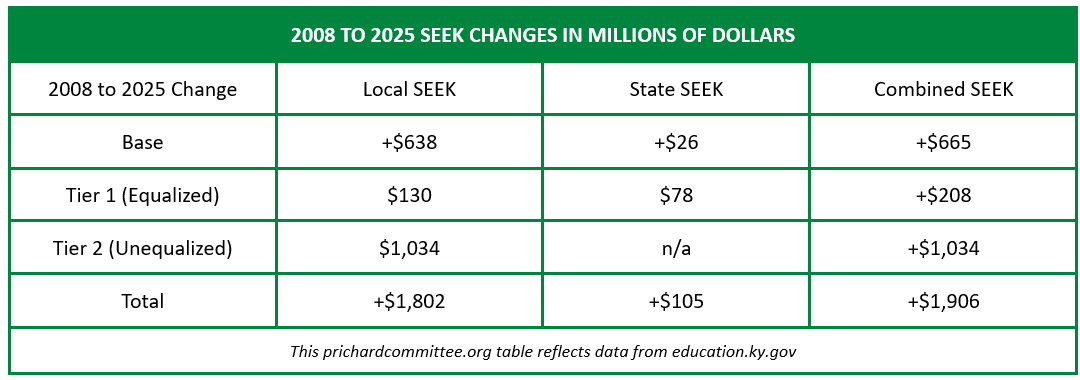Governor Beshear offered his budget recommendations for the next two fiscal years last night, addressing the commonwealth in a recorded address and releasing a draft budget bill for public consideration. Here, I’ll summarize his proposals, including important steps forward on the Big Bold Ask and some continuing questions about how the smaller step up for child care will work for children and the workforce. As in past years, readers can also download more detailed looks at three parts of the budget plan, one each for early childhood, P-12 learning, and postsecondary education.
The two-year budget being constructed now will include 2026 spending and tell us how far Kentucky has moved on the seven elements of the Big Bold Ask. As always, the Kentucky House and Senate will have their own say on these issues, but here’s where the governor’s plan wants to go on those issues for the 2026 fiscal year.

For four of the seven BBA elements, the governor’s plan meets or exceeds the Big Bold Ask’s call for increased annual investment: preschool, kindergarten, school transportation, and needs-based CAP grants.
And the governor calls for postsecondary institutional funding close to the Big Bold Ask level.
The governor’s budget is not as strong in the other two areas, with less than half of the teaching excellence investment and less than one-eighth of the requested CCAP step up in child care support.
The CCAP proposal also leaves important questions. The proposed $29 million in state funding is listed in the governor’s bill draft as meant to “retain the average $37 per day provider reimbursement rate for the Child Care Assistance Program (CCAP).” That’s clear on rates, but doesn’t spell out the other parts of the needed equation. The Prichard team will be working to learn more about the plan, starting with these two major puzzles:
- In July 2023, 37,635 children received CCAP support, according to a briefing offered by the Division of Child Care to an interim legislative committee. Does the governor’s budget plan provide enough money to continue serving all those children? If not, how far will participation drop, and how will that affect their parents’ workforce participation.
- In past years, CCAP parents were required to make income-based copayments, covering part of the cost of their children’s care. More recently, federal recovery dollars freed families from those copayments. Is the governor’s budget plan based on a return of the old copayment schedule, a lower copayment schedule, or no copayments at all?
The governor’s proposal also includes big investments in educator pay, health care, and retirement, along with steps up in funding for instructional resources, facilities, and Kentucky’s other financial aid programs for postsecondary students. For further details, check out our summaries for early childhood, P-12, and postsecondary. You can also review the governor’s draft budget bill and official summary. to get the very fullest sense of his proposals.












